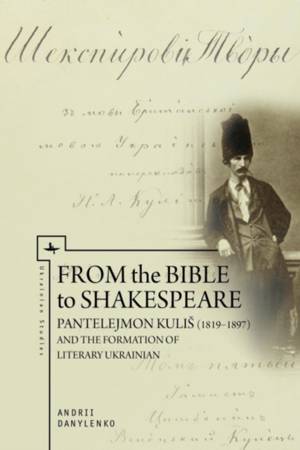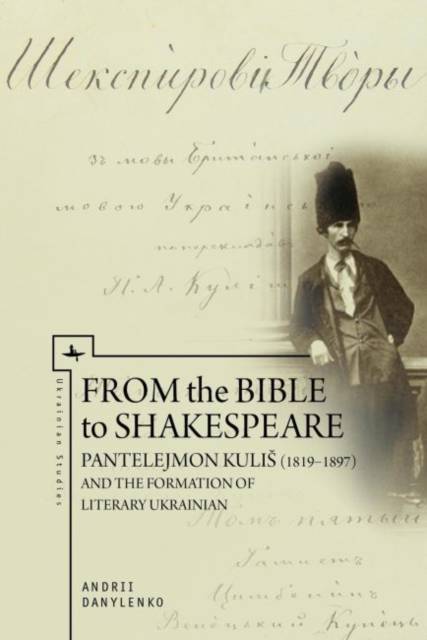
- Afhalen na 1 uur in een winkel met voorraad
- Gratis thuislevering in België vanaf € 30
- Ruim aanbod met 7 miljoen producten
- Afhalen na 1 uur in een winkel met voorraad
- Gratis thuislevering in België vanaf € 30
- Ruim aanbod met 7 miljoen producten
Zoeken
From the Bible to Shakespeare
Pantelejmon Kulis (1819-1897) and the Formation of Literary Ukrainian
Andrii Danylenko
€ 175,95
+ 351 punten
Uitvoering
Omschrijving
This is the first comprehensive study of the language program of the prominent Ukrainian writer and ideologue Pantelejmon Kulis (1819-1897) whose translations of the Bible and Shakespeare proved most innovative in the formation of literary and the national self-identification of Ukrainians. The author looks at Kulis's translations from the perspective of cultural and ethnic studies, presenting literary Ukrainian as a process of negotiation among literary traditions, religions (rites), political movements, and personalities.This book may be used in university courses on the history of Slavic languages and literatures, contemporary theories of nation-building and national identity as well as language contact and (historical) sociolinguistics. The discussion of language policy in the Russian Empire and Austria-Hungary can be included in regular university courses on Slavic civilizations, history of Central and Eastern Europe (Russia, Poland, and Ukraine).
Specificaties
Betrokkenen
- Auteur(s):
- Uitgeverij:
Inhoud
- Aantal bladzijden:
- 472
- Taal:
- Engels
- Reeks:
Eigenschappen
- Productcode (EAN):
- 9781618114709
- Verschijningsdatum:
- 13/09/2016
- Uitvoering:
- Hardcover
- Formaat:
- Genaaid
- Afmetingen:
- 156 mm x 234 mm
- Gewicht:
- 834 g

Alleen bij Standaard Boekhandel
+ 351 punten op je klantenkaart van Standaard Boekhandel
Beoordelingen
We publiceren alleen reviews die voldoen aan de voorwaarden voor reviews. Bekijk onze voorwaarden voor reviews.







